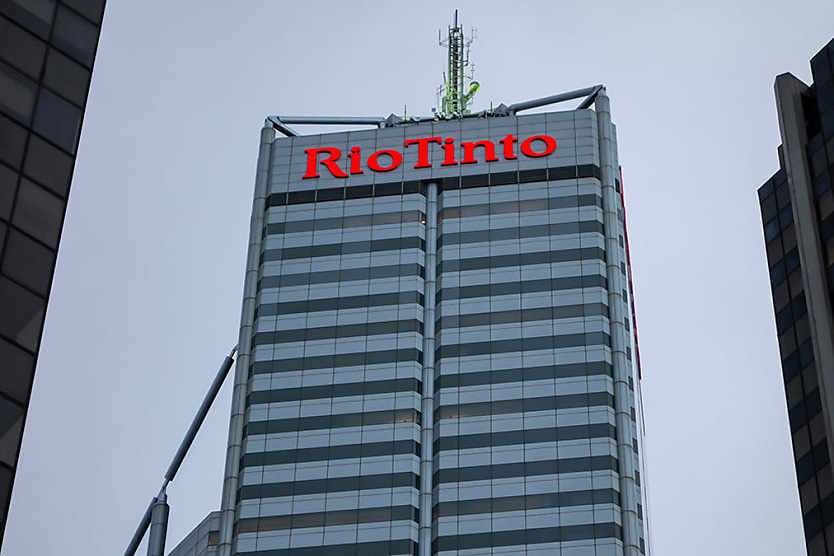Class action against mining giant Rio Tinto over sexual harassment
SHARE THIS ARTICLE

An investigation into a potential class action against mining giant Rio Tinto is underway after reports of sexual discrimination and harassment.
Representing the employees and contractors of Rio Tinto, Shine Lawyers is investigating a potential class action on behalf of the staff who may have been subjected to sexual discrimination or sexual harassment at the Australian mine sites.
Class actions practice leader Sarah Thomson stated: “The investigation aims to determine whether Rio Tinto and/or its related subsidiaries failed to take adequate steps to eliminate discrimination and sexual harassment for employees as far as possible in its workplaces, and whether they are liable.”
Back in 2022, Rio Tinto published an external review of its workplace culture. The review was carried out by former Australian sex discrimination commissioner Elizabeth Broderick, who identified disturbing findings of bullying, sexual harassment, racism and other forms of discrimination throughout the company.
“The report found that a large proportion of female employees described enduring everyday sexism, which impacted self-esteem, personal relationships and their employment,” Thomson said.
“We do not live in a world that tolerates sexual abuse and harassment in any workplace. Women have spoken out about instances of sexual abuse and assault and ultimately being driven out of the industry for speaking out. We cannot let any employer get away with this conduct without consequence.”
The disturbing findings from the report were highlighted by these key actions, which had occurred throughout the previous five years before the report was published. This included:
- Bullying and sexism are systemic across Rio Tinto worksites, with almost half of the people experiencing bullying.
- Over 28 per cent of women and 6.7 per cent of men have experienced sexual harassment at work.
- Exactly 21 women reported actual or attempted rape or sexual assault.
- Racism is common across a number of areas, with the survey indicating people working in a country different to their birth experienced high rates of racism and that 39.8 per cent of men and 31.8 per cent of women who identify as Aboriginal or Torres Strait Islander in Australia experienced racism.
Rio Tinto Group is the world’s second-largest metals and mining corporation, employing approximately 45,450 people across 35 countries, making the scathing report even more damaging.
According to Shine Lawyers, under the Sex Discrimination Act, an employer can be held vicariously liable for harassment by employees if the employer did not take “all reasonable steps to prevent the employee from committing the harassment”.
After the report was published, Rio Tinto chief executive Jakob Stausholm expressed shame and an apology to the employees who had been affected by these seemingly widespread issues.
“The findings of this report are deeply disturbing to me and should be to everyone who reads them. I offer my heartfelt apology to every team member, past or present, who has suffered as a result of these behaviours. This is not the kind of company we want to be. I feel shame and enormous regret to have learned the extent to which bullying, sexual harassment and racism are happening at Rio Tinto,” Stausholm said.
“I am determined that by implementing appropriate actions to address the recommendations, and with the management team’s commitment to a safe, respectful and inclusive Rio Tinto in all areas, we will make positive and lasting change and strengthen our workplace culture for the long term.”
RELATED TERMS
According to the Australian Human Rights Commission, discrimination occurs when one individual or group of people is regarded less favourably than another because of their origins or certain personality traits. When a regulation or policy is unfairly applied to everyone yet disadvantages some persons due to a shared personal trait, that is also discrimination.
Harassment is defined as persistent behaviour or acts that intimidate, threaten, or uncomfortably affect other employees at work. Because of anti-discrimination laws and the Fair Work Act of 2009, harassment in Australia is prohibited on the basis of protected characteristics.
Sexual harassment is characterised as persistent, frequent, and unwanted sexual approaches or behaviour of a sexual nature at work. Sexually harassing another person in a setting that involves education, employment, or the provision of goods or services is prohibited under the law.
Kace O'Neill
Kace O'Neill is a Graduate Journalist for HR Leader. Kace studied Media Communications and Maori studies at the University of Otago, he has a passion for sports and storytelling.

